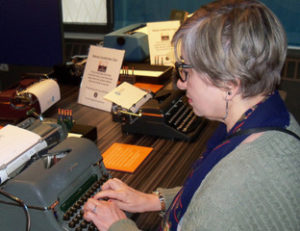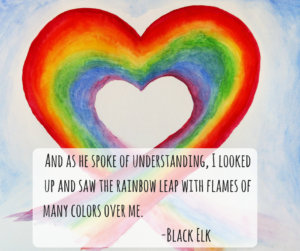 When I read or write fiction, I like seeing characters make bad decisions and then deal with the consequences. However, if they make those decisions for implausible reasons, they can appear silly or inconsistent rather than attracting sympathy. If they’re forced into decisions because of overwhelming external factors, they may come across as lacking agency. In both cases, the decision seems made purely to further the plot rather than arising naturally. For me, the sweet spot is when readers can appreciate straight off (or shortly afterwards) that a character has made a misstep with likely repercussions, but it’s understandable why they ended up in that situation.
When I read or write fiction, I like seeing characters make bad decisions and then deal with the consequences. However, if they make those decisions for implausible reasons, they can appear silly or inconsistent rather than attracting sympathy. If they’re forced into decisions because of overwhelming external factors, they may come across as lacking agency. In both cases, the decision seems made purely to further the plot rather than arising naturally. For me, the sweet spot is when readers can appreciate straight off (or shortly afterwards) that a character has made a misstep with likely repercussions, but it’s understandable why they ended up in that situation.
In my day job in a pathology lab, mistakes can have serious, even fatal, consequences. We try our hardest to minimise them as well as spotting and correcting them as early as possible. When (not if””we’re human, after all) a mistake happens, we investigate the reasons and see what we can do to prevent a repeat. Additionally, at corporate level, we are expected to attend courses on how to make systems safer. Such training can be a chore, but for me it has one significant plus: it’s fertile ground for ideas about where characters may go wrong.
I’d like to share here how I set up my characters’ unforced errors, allowing them to make plot-influencing mistakes in a realistic manner. The concepts aren’t new, but using risk management ideas helps me to flesh out details. This isn’t an academic treatise, so I have cherry-picked knowledge from workshops on error, mandatory training and general wider reading. Also, the definition of “wrong” in this context might be fluid, but I’d view it as something suboptimal for the character’s intentions (and interesting for the reader).
First, I think about the character’s environment and what real-life factors might lead the character in the wrong direction. What kinds of flawed reasoning might the character(s) use, and why? And what organisational/social factors might create an environment where it’s easy to make mistakes?
Human errors
The Health and Safety Executive (http://www.hse.gov.uk) categorises human failures as errors (unintended actions or decisions) or violations (intentional deviation from a rule or procedure). The latter is a common trope in stories, with the protagonist deliberately acting against authority in order to achieve a greater good, often with an awareness that such behaviour will incur a cost. I’ll concentrate on the former.
One type of error is the slip or lapse, where a habitual or familiar task is for some reason not completed as planned. Such tasks need little concentration to perform correctly: for example, driving home, cooking dinner, tying up the fiftieth captive in a row. It’s difficult to predict when a slip or lapse might occur. Factors such as time pressure or distractions increase the risk. In fiction writing, we could imagine a situation where a character’s routine is derailed slightly by a distraction or being in a hurry. Such a lapse (e.g. leaving keys on the table by the cell) could have knock-on consequences.
The other type of error is the mistake. This involves a wrong judgement or decision made with conscious thought (in the “attentional control mode”), and it leads to a wrong action. Such errors often occur in situations that are unfamiliar. Whether or not we appreciate the newness of the situation, we might try to apply known rules. For example, a character might eat (or feed another character) a poisonous herb because it looks like a beneficial one.
Added to the above, our decision-making is often influenced by different types of bias (i.e. a subjective preference for or against something without firm evidence).
Flavours of bias include:
Anchoring bias. When there are several options available, anchoring bias is the tendency to lock on to a specific option, and to fail to reconsider when subsequently given evidence against it. Often the favoured option is first (or early) in the list, and items in the middle of the list receive less attention. Thus, the order in which options are presented may influence the decision. An example of this in fiction might be a murder mystery when the detective identifies a likely suspect early on. Further clues point more strongly towards other people, but the detective brushes those aside until faced with an unpleasant shock (such as a second murder when the favoured suspect is in custody).
Cognitive overload bias. If someone is presented with more information than they can reasonably process, they are forced to ignore some of it. This means that they may make a decision without considering all the relevant information (because they were focussed on other factors).
Of course, decision-making doesn’t occur in isolation. In fiction (as in real life), individuals will have multiple concerns, personal agendas, interpersonal conflicts and other problems that can add deliciously to their challenges.
Organisational factors
People don’t function or make decisions in isolation. There are aspects of their environment that may hamper them””or, alternatively, that they could manipulate in order to get their way.
One point to stress about the organisation (tribe, crew, social system etc) that a character functions in is that the organisation’s prime purpose is generally not to make the character’s life difficult. That said, there are real-life organisations where the environment doesn’t facilitate good decision-making: not because of maliciousness, but because the setup is poor. Several examples are discussed in The Blunders of Our Governments by King and Crewe. I’ve picked a few concepts from the book which can complicate life for fictional characters.
Group-think. In a group of people tasked with an objective, maintaining the group’s cohesion by avoiding disagreement may become more important than raising concerns. Nobody wants to be “that person”, and so everyone remains silent about an obvious problem that could be easily anticipated. Our hapless character may be on the receiving end of a bad decision by such a group. Alternatively, he or she might have been part of such a group, witness the fallout of the bad decision and feel obliged to deal with the consequences. As an example, in my first book A Quiet Rebellion: Guilt, my main character (Jonathan) tentatively suggests to the Chief Scientist that some of her reasoning has been wrong. She’s built her career on her research, and she’s not going to hear him out””and her colleagues don’t seem inclined to contradict her.
[Chief Scientist Lady Nelson says] “… She must have ventured outside the city walls on some escapade. Don’t you agree?”
“Ah, I don’t think so, ma’am.” Jonathan squared his shoulders. She wasn’t going to like this. “I believe there are historical accounts””””
“Pah, historians!” Lady Nelson scowled and shook her head. “All they do is dig through old stories without paying any attention to real world data. History is all very well for looking at how society developed, but not for finding out how the world really works. We do not deal in fairytales, Captain Shelley.”
Cultural disconnect. “Everyone projects on to others his or her lifestyles, preferences and attitudes.” (From King and Crewe). Cultural disconnect arises when a group (usually in power) assumes that others can and will think and react similarly to them, including holding the same values. It’s easy to imagine a fictional character being the one imposed upon, or trying to find some way to translate superiors’ orders into a language that’s meaningful on the shop floor. Sticking with Jonathan, he’s now reporting back to the Council in the capital about how his tour of the rural settlements went. Chief Councillor Hastings asks how the new regulations were received. Jonathan has an internal grumble that the documents are written in bureaucratese, but replies:
“The settlements remain vigilant and are familiar with current official advice.”
[Hastings nods] “Good. Nice to know they pay attention to those notices we send out.”
Hastings isn’t trying to make things difficult, but his casual comment (compounded by Jonathan’s unwillingness to complain) suggests he doesn’t expect there to be a problem. His concern is that the rurals remain willing to cooperate, not whether they can understand him.
Operational disconnect. This is a gap between those who devise plans or policies, and those whose job it is to implement them. In fiction, this might risk becoming a simplistic plot device where those in charge make unreasonable demands of a character, purely to force a plot-convenient challenge and conflict. However, if there is clarity over why the plans were thought to be reasonable (not necessarily fully played out on page), the challenge feels less artificial. In the Council meeting above, Jonathan reports how a rural mayor made a mistake (based on wrong implementation of one of the regulations), but he glosses over things in the telling. After all, he already yelled at the mayor at the time, and there’s no point in escalating things. Unfortunately, Jonathan’s reprimand leads the mayor to overcompensate in the other direction. When news of the second incident reaches Jonathan, he partly blames himself, but he was caught between the instructions of the Council and the practicalities of the settlements.
Round up
I believe that that characters’ poor decisions feel more compelling if there are on-page or behind-the-scenes reasons leaving them vulnerable to making mistakes. The concepts discussed above aren’t new, and writers are no doubt using them already. I offer them here as an additional set of tools. I use them to brainstorm how to bridge the gap between what a character would rationally do and what I (as the character’s creator) need to happen.
Author bio for M. H. Thaung
 M.H. Thaung was born in Scotland and has moved progressively southwards throughout her career in pathology, ending up in a biomedical research institute in London, England. (As a staff member, not a specimen!) She loves her job and academic writing, with dozens of scientific publications over the last couple of decades. More recently, she has ventured into speculative fiction to discover what might happen if the world worked a little differently.
M.H. Thaung was born in Scotland and has moved progressively southwards throughout her career in pathology, ending up in a biomedical research institute in London, England. (As a staff member, not a specimen!) She loves her job and academic writing, with dozens of scientific publications over the last couple of decades. More recently, she has ventured into speculative fiction to discover what might happen if the world worked a little differently.
She’s currently working on A Quiet Rebellion: Posterity, the final novel in her Numoeath mannerpunk trilogy. A Quiet Rebellion: Guilt and A Quiet Rebellion: Restitution were released last year.
Website: https://mhthaung.com/
Twitter: https://twitter.com/mhthaung
Enjoy this writing advice and want more content like it? Check out the classes Cat gives via the Rambo Academy for Wayward Writers, which offers both on-demand and live online writing classes for fantasy and science fiction writers from Cat and other authors, including Ann Leckie, Seanan McGuire, Fran Wilde and other talents! All classes include three free slots.
If you’re an author or other fantasy and science fiction creative, and want to do a guest blog post, please check out the guest blog post guidelines








 Treading the waters of diversity is tricky because we never want to disrespect the struggles that women, people of color, the LGBTQ community, or others have had to endure. As writers, we often want to include people like this in our stories because their stories are powerful and can make a difference. This sometimes manifests itself as ‘the gay friend’ or ‘the black friend’ or if you’re really batting for a home run ‘the gay black friend’. This character is great for diversity. He shows that those people exist and that we shouldn’t be afraid of them. But over time, if we see the gay black friend over and over it creates a subliminal message that all gay black men behave a certain way, and that can damage the community. I think we should allow those characters to break the mold and keep it to themselves.
Treading the waters of diversity is tricky because we never want to disrespect the struggles that women, people of color, the LGBTQ community, or others have had to endure. As writers, we often want to include people like this in our stories because their stories are powerful and can make a difference. This sometimes manifests itself as ‘the gay friend’ or ‘the black friend’ or if you’re really batting for a home run ‘the gay black friend’. This character is great for diversity. He shows that those people exist and that we shouldn’t be afraid of them. But over time, if we see the gay black friend over and over it creates a subliminal message that all gay black men behave a certain way, and that can damage the community. I think we should allow those characters to break the mold and keep it to themselves.
